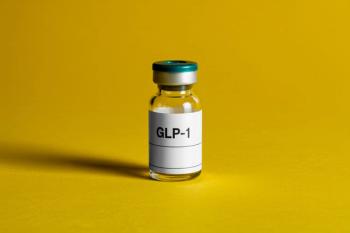
- Psychiatric Times Vol 25 No 12
- Volume 25
- Issue 12
Is Diagnosis of Comorbidities Obsolete?
Recent research has raised concerns about the adequacy of psychiatric diagnostic evaluations conducted in routine clinical practice, particularly the detection of disorders that are comorbid to the principal diagnosis.
Recent research has raised concerns about the adequacy of psychiatric diagnostic evaluations conducted in routine clinical practice, particularly the detection of disorders that are comorbid to the principal diagnosis. Four independent research groups have found that comorbidity is diagnosed more frequently when semistructured interviews are used compared with unstructured diagnostic interviews.1-4 When patients’ desire for treatment of comorbid Axis I disorders that were not the primary reason for seeking treatment was examined, it was found that patients often wanted treatment for their comorbid conditions.5 Thus, detecting comorbidity was important from a consumer/patient perspective.
It is perhaps not surprising that the underrecognition of comorbidity has received greater attention in the current health care reform zeitgeist. Clinicians are struggling to conduct diagnostic evaluations more efficiently in the face of declining reimbursement rates. Anecdotal conversations with practicing psychiatrists indicate that they often complete their evaluations, including the write-up, in 30 to 45 minutes. It is to be expected that the frequency of missed diagnoses, and maybe even misdiagnoses, will increase when insufficient time is allotted for the diagnostic examination.
During the past 2 decades, semistructured diagnostic interviews have served as the diagnostic gold standard, albeit an imperfect one. In most of the studies summarized in the following reports, diagnoses were based on these interview schedules. Judged against this standard, the studies that compare clinical diagnoses to diagnoses based on semistructured interviews suggest that clinicians are not doing a very good job at picking up comorbidities.
Are these findings cause for alarm? That is hard to say, because little research has shown the clinical significance of the gap between researchers’ and clinicians’ diagnostic practices. Specifically, we are not aware of any studies that have examined the important question of whether the more reliable and comprehensive research diagnostic evaluations actually improve outcomes. In fact, one could argue that outcomes for patients are not more likely to be worse, even if diagnoses are missed.
Currently, pharmacological agents with broad-based efficacy are available; therefore, diagnostic error might not be important. The new generation of medications, such as SSRIs, have been found to be effective for depression, almost all anxiety disorders, eating disorders, impulse control disorders, and some somatoform disorders. In short, most of the disorders for which individuals seek outpatient care respond to at least 1 of the new generation of antidepressant medications. Thus, it is possible that accurate and comprehensive DSM-IV–oriented diagnostic evaluations are not critical after gross diagnostic class distinctions (eg, psychotic disorder vs mood disorder) are made.
On commonsense grounds, it seems logical that greater diagnostic accuracy will improve outcome. More complete and accurate diagnostic evaluations might influence whether a medication is prescribed, the choice of medication, the number of medications prescribed, and whether psychotherapy would be beneficial.
One can also hypothesize that more complete and accurate knowledge of a patient’s psychiatric disorder(s) might improve outcome independent of changes in treatment decisions. That is, better diagnostic practice may result in greater patient satisfaction with the diagnostic assessment, an improved alliance with the treating clinician and, consequently, better treatment adherence and better outcome.
It is important to recognize that diagnosis has more than 1 clinically relevant function. In addition to optimizing outcome, diagnosis is important for predicting treatment outcome. We would expect that a greater percentage of the variance in outcome would be predicted by comprehensive evaluations than by clinical diagnoses.
In reading the following articles, pay particular attention to whether controlled studies have been done that specifically examine efficacy of treatment in individuals with multiple diagnoses. Most often treatment recommendations are based on extrapolations from studies of single disorders. Thus, if a medication is effective in the treatment of disorder X and disorder Y then it is recommended for individuals who have both X and Y.
The STAR*D study is the largest study to examine the influence of comorbidity on differential treatment response, and the investigators found little evidence that the type of comorbidity predicted differential response to sertraline, venlafaxine, or bupropion after depressed patients did not respond to an initial trial of citalopram.6 Based on studies of treatment efficacy for single disorders, one would expect that the depressed patients with comorbid anxiety disorders would have responded better to sertraline and venlafaxine than bupropion. However, there was no evidence of differential treatment response. Thus, there is little empirical support for the validity of the assumption that clinicians should preferentially choose a medication for patients with comorbid disorders because each of the disorders is effectively treated by the medication when it is not comorbid.
The available evidence suggests that comorbidity is frequently overlooked. Should the standard of care move toward the adoption of semistructured diagnostic interviews in an effort to improve diagnostic practice? It has been nearly 30 years since DSM-III was published, and during this time pharmacotherapies and psychotherapies have been repeatedly shown to be effective for a wide range of DSM disorders. Consequently, it would seem more important now than 30 years ago that accurate diagnoses be made. It is hoped that the next generation of research on diagnosis (eg, changes in diagnostic criteria or practice) will attend to the most salient aspect of psychiatric treatment-the outcome of care.
References:
References
1. Ramirez Basco M, Bostic JQ, Davies D, et al. Methods to improve diagnostic accuracy in a community mental health setting. Am J Psychiatry. 2000;157: 1599-1605.
2. Miller PR, Dasher R, Collins R, et al. Inpatient diagnostic assessments: 1. Accuracy of structured vs. unstructured interviews. Psychiatry Res. 2001;105:255-264.
3. Shear MK, Greeno C, Kang J, et al. Diagnosis of nonpsychotic patients in community clinics. Am J Psychiatry. 2000;157:581-587.
4. Zimmerman M, Mattia JI. Principal and additional DSM-IV disorders for which outpatients seek treatment. Psychiatr Serv. 2000;51:1299-1304.
5. Zimmerman M, Mattia JI. Psychiatric diagnosis in clinical practice: is comorbidity being missed? Compr Psychiatry. 1999;40:182-191.
6. Rush AJ, Wisniewski SR, Warden D, et al. Selecting among second-step antidepressant medication monotherapies: predictive value of clinical, demographic, or first-step treatment features. Arch Gen Psychiatry. 2008;65:870-880.
Articles in this issue
over 17 years ago
Untreated Vets: A “Gathering Storm” of PTSD/Depressionover 17 years ago
Detainee Interrogations: Important to Remember Our Pastover 17 years ago
SSRIs, Adolescent Suicide, and the Black Box: Lingering Questionsover 17 years ago
In the Valley of Elahover 17 years ago
Topical NSAIDs: Old Wine in a New Bottleover 17 years ago
Patienthood: A Different Form of Beingover 17 years ago
Underdiagnosing and Overdiagnosing Psychiatric Comorbiditiesover 17 years ago
Psychiatric Comorbidity in Emergency Department Patientsover 17 years ago
Psychiatric Comorbidity Associated With Pathological Gamblingover 17 years ago
NIMH Plans Accelerating Research to RemediesNewsletter
Receive trusted psychiatric news, expert analysis, and clinical insights — subscribe today to support your practice and your patients.







